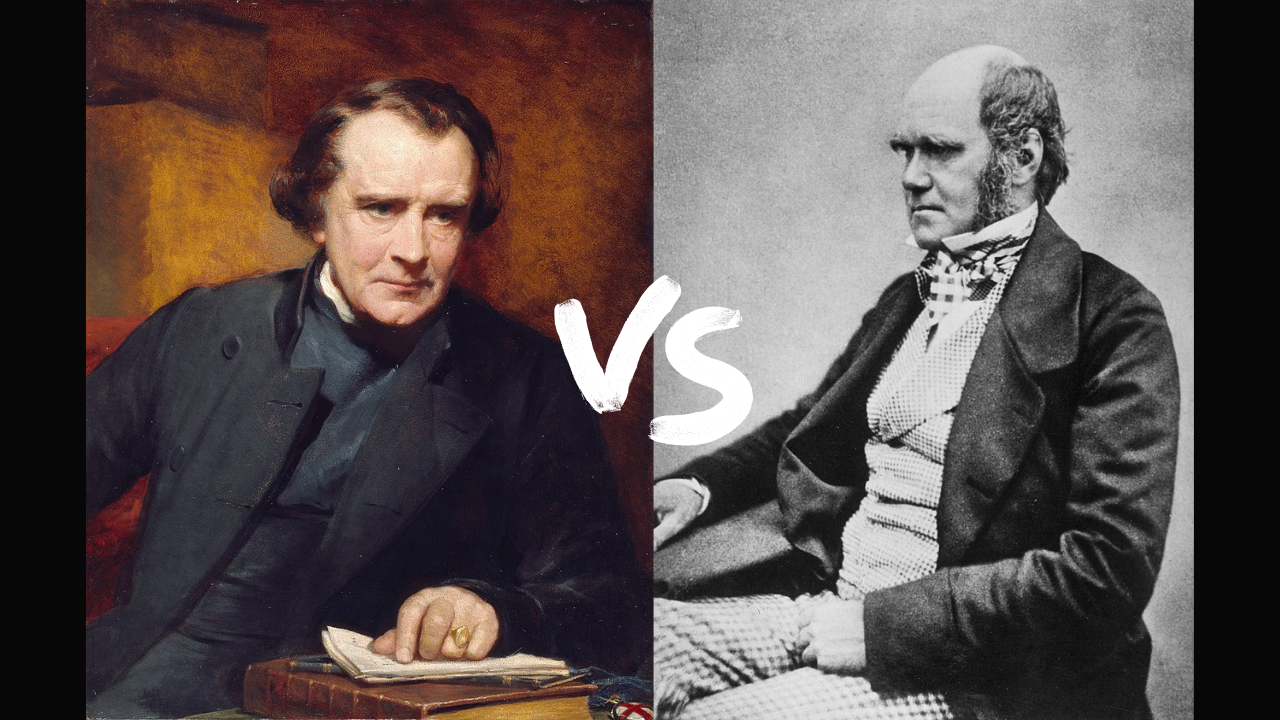Samuel Wilberforce Critiques the ‘Unbounded Assumptions’ of Darwin’s Theory of Evolution
In June 1860, just seven months after Charles Darwin published On the Origin of Species, three men hotly debated the merits of Darwin’s argument at a meeting of the British Association. Biologist Thomas Henry Huxley and botanist Joseph Hooker defended Darwin’s theory. English bishop, speaker, and writer Samuel Wilberforce critiqued it. And though he was a man of the cloth, Wilberforce did not build a theological case against Darwin. Rather, he evaluated the argument for natural selection on scientific grounds, exposing its “loose statements and unfounded speculations” by weighing it “in the simple scales of logical examination.” On this ID The Future, host Andrew McDiarmid treats you to excerpts from Wilberforce’s powerful critique, published as a review a month after the debate in Quarterly Review.
Over time, Darwin defenders have turned this meeting into a legendary event that helped to usher in “the autonomy of science” in Britain and the erosion of faith in religion and superstition. They hail the debate as the first public face-off between “biblical literalism” and “the growing science of evolution.” But this view is more myth than fact. The idea of evolution wasn’t new to people by the mid 19th century. Darwin’s grandfather Erasmus Darwin had suggested an evolutionary view in his poetry and medical writing. French and German anatomical and evolutionary ideas made their way to medical schools in Edinburgh and London. In 1844, Scottish publisher Robert Chambers penned his sensational book Vestiges of the Natural History of Creation. So the famous debate was really an expression of the currents of thought already running through British science and society in 1860.
Nor did Wilberforce champion “biblical literalism” in his critique of Darwin’s new theory. “We have objected to the views with which we have been dealing solely on scientific grounds,” he writes, adding that “it is thus that the truth or falsehood of such arguments should be tried.” He goes on to say he has no sympathy for those who would object to such arguments simply because they believe they contradict Revelation. “It is as an ‘argument’ that the essay is put forward,” says Wilberforce, and “as an argument we will test it.”
In a review of over 18,000 words, Wilberforce tracks Mr. Darwin’s journey “into the Jungle of Fanciful Assumption,” scrutinizing each proposition Darwin makes to support his conclusion. He exposes Darwin’s attempt to use the existence of limited and temporary variations in organisms to argue for the emergence of entirely new species. He notes Darwin’s error in arguing that natural selection operates the same way as artificial selection and points out that the majority of mutations result in monstrosities, not improvements. He describes Darwin’s assumption of time as a magical wand capable of limitless progress. He echoes Darwin’s own concerns about the lack of intermediate forms in the fossil record. And he takes Darwin to task on each of the naturalist’s main claims, quoting liberally from Darwin’s own words and providing readers with much-needed context from leading scientists of the day.
And when we place Wilberforce’s arguments, written right after the publication of Darwin’s theory, alongside what we’ve learned in the last century about the digital code of DNA, the nano-machinery powering even the simplest living cells, the evidence of a beginning to the universe and of exquisite fine-tuning throughout it, as well as what we’ve discovered about the limitations of natural processes, we can see Wilberforce was correct to push back on Mr. Darwin’s assumptions.
Enjoy this reading from Wilberforce’s important rebuttal of Darwin’s theory.
Dig Deeper
- Read Samuel Wilberforce’s entire review of On the Origin of Species.
- Wilberforce earned a degree in mathematics at Oxford University. We think he’d be riveted by this conversation on the mathematical challenges to Darwin’s theory, featuring Stephen Meyer, David Berlinski, and David Gelernter!
